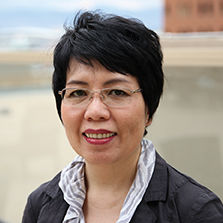
In 2014,
PricewaterhouseCoopers director of travel management Lauren Lee realized the
demographics of her travelers were changing. As Lee dug deeper into travel
program feedback and solicited more feedback from travel arrangers and
managers, a theme emerged above all the specifics. "It kept coming back to
making travelers happier and more productive on the road." said Lee. "That
aligned with our talent strategy at PwC; it aligned with our productivity
initiatives. There were so many linkages that it was worth figuring out." Among
the features she introduced were mobile booking with voice commands,
reimbursement for Global Entry, TSA PreCheck and in-flight Wi-Fi, caller
authentication at the travel management company, instant message chat directly
to agents and a social networking site. Lee spoke about her program with BTN editor-in-chief Elizabeth West.
BTN: What was
the motivation behind surveying PwC travelers, managers and travel arrangers
before redesigning the travel program?
Lee: The
pivot point for us was an internal study done about two years ago that
projected by 2016—basically now—that 80 percent or more of PwC employees would
be Millennials. Based on that, we decided to evaluate whether our program was
still a good fit for our travelers. We talked to senior leaders in the firm. We
asked for feedback from travelers and travel arrangers. Ultimately, all of the
feedback centralized around one concept: "Make me happy." We went on
the mission to explore what that means. Our professionals wanted things to be
fast, easy, flexible, intuitive and all of the things anyone would want. Our
goal was to remove the friction from the travel process.
BTN: What
role has the TMC played in this journey?
Lee: We went
to our TMC and shared the information with them. We said, "This is a
challenge. We really want to meet these expectations." We had a lot of
great discussions and discovery about what would be possible, but we also
challenged the TMC to make the changes cost neutral for PwC. We tried very hard
to stay in the zone of what we could achieve together. Ultimately, we created a
road map [and] many of the initiatives have been completed to date—at no
additional cost.
BTN: The
mobile chat direct to the agent was a first for your TMC. Explain what it has
done for the program.
Lee: We now
have multiple ways to reach our travel agency: traditional telephone, email and
now instant message. It was a must-have for the program, and travelers in our
pilot program told us never to take the feature away. It has really enhanced
the value of the TMC to the traveler. Our travel arrangers [have also]
connected with this service. [They tell us] it helps them to multitask. It's a
time-saver and that's something that we like at PwC.
We've done more
around the communications piece. The TMC now has call authentication that
recognizes callers and maps callers back to traveler arrangers in order to
service bookings more efficiently. We also identified a certain period of time
when our travelers need to have dedicated agents available. So we extended 50
percent of our call hours to match the way that our people work, the time zones,
etc., which has cut down on after-hours calls.
BTN: That
must have saved you money.
Lee: We
really wanted to hit that spot where everybody can be in coexistence between
experience and cost.
BTN 2016 Best Practitioner Lauren Lee
Lauren Lee describes PwC's traveler happiness initiatives.
BTN: You also
implemented a social network for travel. How is that going?
Lee: We
recognized that leveraging our internal social media site would help engage
travelers and travel arrangers. It's popular because we actually answer
questions quickly and [users] also give their feedback very quickly. They no
longer have to wait for the annual survey; they tell us that candidly all the
time. It builds our credibility. We respond to the feedback, positive and
negative, and that is also the way we measure how we're doing as a program.
BTN: How much
administrative control do you have? Do you remove comments or try to control
messaging?
Lee: We want our travelers to interact with each other.
We don't control it, and we don't remove the information. We can make a
correction statement, but that is rare. Oftentimes, a traveler will post a
question and another traveler or travel arranger may actually answer before we
get to it. In a way we're all helping each other, and that's really what social
media is about.